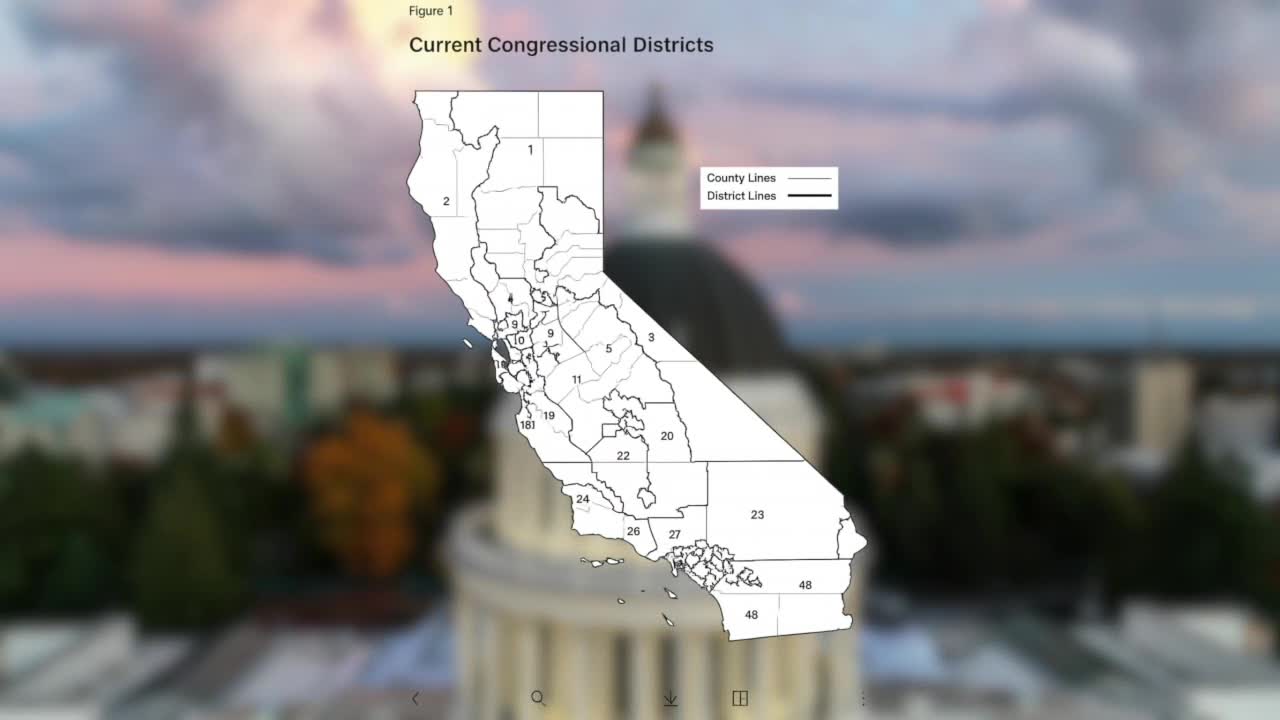BAKERSFIELD, Calif. (KERO) — The future of California’s congressional maps — and who gets to draw them — will be in voters’ hands this November. Proposition 50 would temporarily change the state’s redistricting process, allowing California’s governor and Legislature to adopt new congressional boundaries before the next election cycle.
If approved, those maps would remain in effect through 2030 before returning to the state’s Independent Citizens Redistricting Commission. Supporters say the proposal is a necessary response to partisan gerrymandering in other states, such as Texas. Opponents argue it undermines reforms voters enacted to keep politics out of the process.
“Two wrongs don’t make a right,” said Rep. David Valadao (R–Hanford). “What’s going on across the country with all the gerrymandering is wrong. It’s bad for governance and bad for voters.”
According to the Legislative Analyst’s Office, Proposition 50 would shift district boundaries across California, including in the Central Valley. Under the proposed maps, the 22nd Congressional District — currently represented by Valadao — would expand west into Fresno County, while parts of Kings and Tulare counties would move into neighboring districts.
“If you get your job by only talking to one side, you’ll think the only way to keep your job is to keep talking to that same side,” Valadao said, emphasizing his focus on bipartisan representation.
Democratic challenger Randy Villegas, who is running for the same seat, supports the measure, saying it gives voters—not politicians—the final say.
“Unlike in Texas, where politicians decided to draw those lines without consent of the voters, here in California we’re actually asking voters for that consent,” Villegas said. “And the process would return to the independent commission in 2030.”
Republican Rep. Vince Fong (R–Bakersfield) opposes the initiative, arguing it would undo voter-approved safeguards from more than a decade ago.
“What the governor is doing is carving up those communities and blending them into urban centers, so the urban vote gets more power and the rural representatives get eliminated — and that’s not right,” Fong said.
Fong warned that linking agricultural regions with urban areas could weaken local influence over water and farming policy. Villegas countered that it would strengthen representation for working families.
“We need representation here in the Central Valley from people who understand what working families are experiencing — people working multiple jobs to make ends meet,” Villegas said.
Fong responded, “This is all a power grab by Sacramento politicians — taking communities and carving them up so their voices will never be heard in Congress.”
Valadao said he isn’t concerned about how the proposition might affect his re-election chances.
“I’ve been elected in a Democrat +17 district before. We’re now at a Democrat +11, and this would put me back at about a Democrat +17 again,” he said. “So it’s not unwinnable.”
Villegas framed the issue more broadly: “This isn’t just about California or one district — it’s about whether we’re going to sit on the sidelines as other states try to rig the system against us.”
Assemblywoman Jasmeet Bains, also running for the 22nd District seat, declined an interview but has previously said she opposes bypassing the state’s independent redistricting process and voted against fast-tracking Proposition 50 to the ballot.
Proposition 50 will appear on the ballot in California’s special election this November.
Stay in Touch with Us Anytime, Anywhere:



